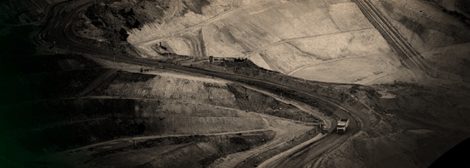“If we keep on allowing that those who defend the environment actually get killed, we can never hope to save the environment”, said environmental activist Nele Marien, of Friends of the Earth International (FoEI), a few hours before the beginning on Tuesday of an important meeting of the United Nations Convention on Biological Diversity (UN CBD) that will take place in Nairobi, Kenya.
“This needs to be part of the meeting”, added Marien, who also warned that the CBD is at a “crossroads” with many actors who are aware of the fact that deep change is needed to protect biodiversity, and corporations pushing to prevent these changes from happening.
The first meeting of the “Open-ended Working Group on the Post-2020 Global Biodiversity Framework” will take place in Nairobi from Tuesday through Friday. Marien, coordinator of FoEI´s Forests and Biodiversity Program, explained in the interview with Real World Radio that the countries will aim to define post 2020 policies that allow to face the serious biodiversity crisis.
The goal is to reach an agreement that can be approved in October 2020 at a meeting in China. While there have been some other regional meetings, this meeting in Nairobi is the first official one in the process and people expect it will set the conditions for how the negotiations will continue.
Changing the system or facing global environmental collapse
On May 6, 2019, the Intergovernmental Science-Policy Platform on Biodiversity and Ecosystem Services (IPBES), that reports to the CBD, published a report [1] where they state that the natural world is in a dire situation and that human actions have significantly altered nature in different parts of the world [2].
The IPBES, which gathers scientists from different countries who prepare reports for the CBD and recommend measures to be implemented, highlighted in the study: “Human actions threaten more species with global extinction now than ever before. Around 1 million species already face extinction, many within decades, unless action is taken to reduce the intensity of drivers of biodiversity loss”.
FoEI reacted immediately to the scientific report and stated in a press release [3] issued on May 6th that when reading the report it is clear that the world faces ecological collapse and mass extinctions unless dramatic action is taken to change social and economic systems. FoEI has been denouncing for years transnational corporations as the main culprits for the decline of biological diversity with activities such as industrial agriculture, mining, forestry, agrofuel production, among others.
Marien told Real World Radio that the entire post 2020 CBD process is important and that FoEI considers that system change is needed to answer to the threats faced by biodiversity. She reminded that the IPBES report speaks of the need of “transformative change” to protect biodiversity. And she added that FoEI, as well as other organizations and social movements, are following the process of negotiation at the CBD and are present in Nairobi to try to ensure from the beginning that the true drivers of biodiversity destruction are addressed and for this “transformative change” to advance in the right direction. In this way, Marien complained because “there doesn’t seem to be a lot of importance given in the whole process to the drivers”.
The environmental activist warned that FoEI has also been pushing for the respect of the rights of indigenous peoples and the right of the people to defend their environment. “If we keep on allowing that those who defend the environment actually get killed we can never hope to save the environment”, she said.
Another important issue for Marien is what FoEI refers to as “false solutions” to the biodiversity crisis. She made reference, for instance, to the positions in favor of improving how businesses take place, or those who aim at corporate social responsibility, or offsetting schemes for biodiversity loss. The activist explained that these issues are on the negotiation table and that FoEI is trying to refute them with the voices of local communities themselves, who confirm that these “solutions” don´t work.
The CBD at a crossroads
The representative of FoEI recognized and highlighted the important role of several actors at the CBD who have always tried to protect biodiversity. She particularly highlighted the government representatives from environment ministries against those who represent economy ministries. These good actors have “a real understanding and are alarmed by the state in which biodiversity is”. However, she said that the CBD is at a crossroads: “while we are actually increasing the pressure to really change things, of course you get the counter reaction of those who don’t want change”, she said, and added: “We are seeing that corporate actors are way more present now in the CBD than they were a few years ago, which gives an indication actually that they are afraid of what may happen there. There is also a reason to be there. The fight is really on in the CBD at this moment”.
At the end of the interview, the Forests and Biodiversity coordinator of Friends of the Earth International highlighted it is important to define policies that allow states to stop the drivers of biodiversity destruction. She also explained that there is pressure to undermine these policies and give power to corporations. Nevertheless, Marien highlighted that “saving biodiversity can’t come only from the governments, and the politics and the legislation”. “It very much comes from the ground, from the indigenous peoples, the local communities living in all the ecosystems and the initiatives from people doing agroecology, from people working in cooperatives ways and dismissing all the corporate influence”.
The report published in May by IPBES recognized the key role of indigenous people and local communities in the frontline of the defense of ecosystems and biodiversity. And confirmed that “community-based conservation institutions and local governance regimes have often been effective, at times even more effective than formally established protected areas, in preventing habitat loss”.
